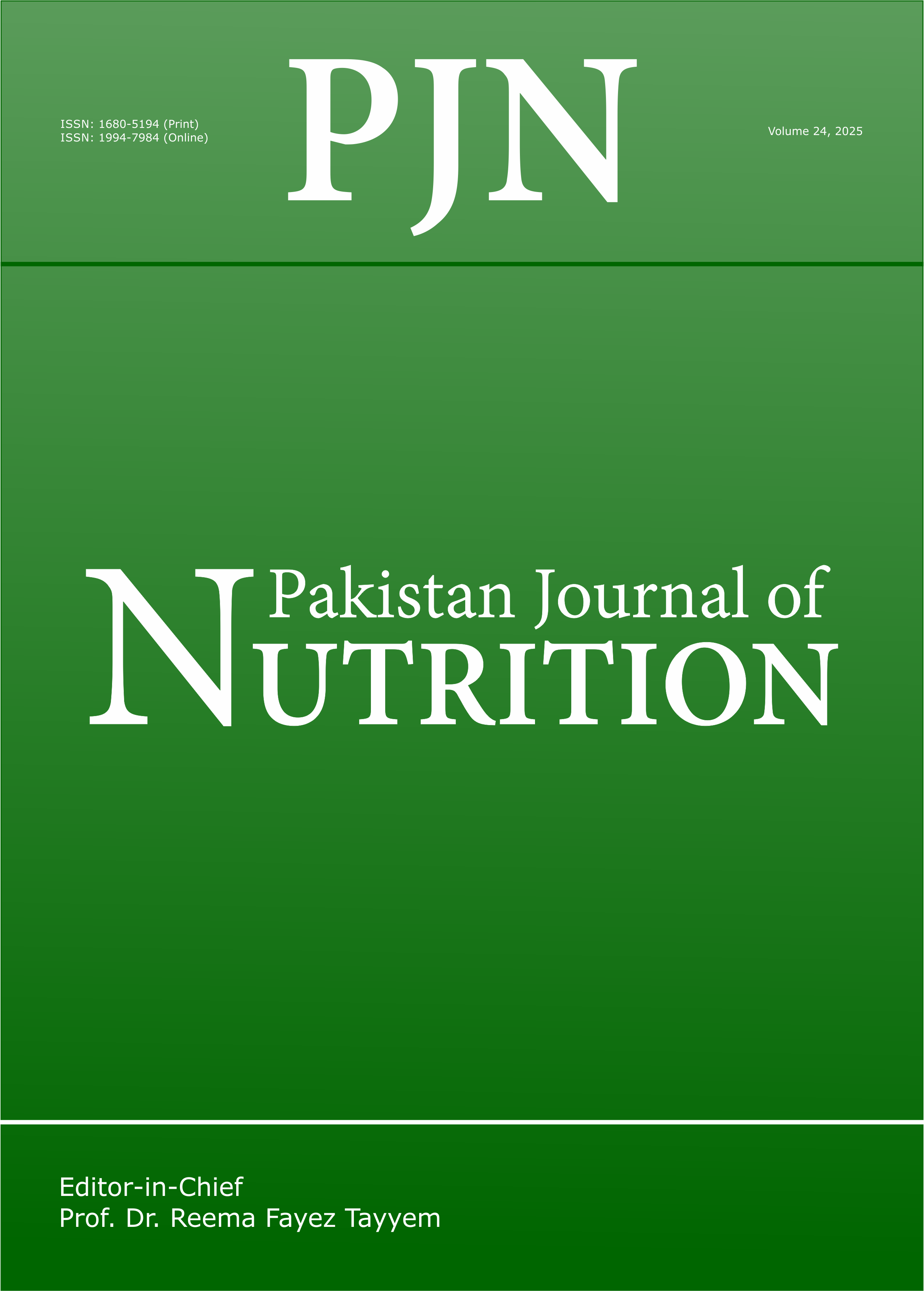Antinutrient Factors of Vegetable Cowpea (Sesquipedalis) Seeds During Thermal Processing
DOI:
https://doi.org/10.3923/pjn.2007.194.197Keywords:
Anti nutritional factors, autoclaving, boiling, roasting, vegetable cowpeaAbstract
The effect of boiling, roasting and autoclaving on the levels of some antinutrient factors present in the seeds of vegetable cowpea (sesquipedalis) were studied. The reduction of trypsin inhibitor was found to be highest (100 percent) with autoclaving at 60 min. Boiling was more effective in reducing phytic acid (68.34 percent) and haemagglutinin (75.98 percent) respectively at 60 min than the other processing treatments at the same time. The hydrogen cyanide was markedly reduced up to 81.25 percent at 15 min by autoclaving method while boiling at 60min resulted in (81.25 percent) reduction. Tannin content was reduced by boiling and roasting up to 75.00 percent at 60 min and 75.00 percent at 120 min respectively. Boiling and autoclaving at 60 min significantly reduced stachyose (60.52 percent - 84.21 percent) and raffinose (67.97 - 83.66 percent).
Downloads
Published
Issue
Section
License
Copyright (c) 2007 Asian Network for Scientific Information

This work is licensed under a Creative Commons Attribution 4.0 International License.
This is an open access article distributed under the terms of the Creative Commons Attribution License, which permits unrestricted use, distribution and reproduction in any medium, provided the original author and source are credited.

